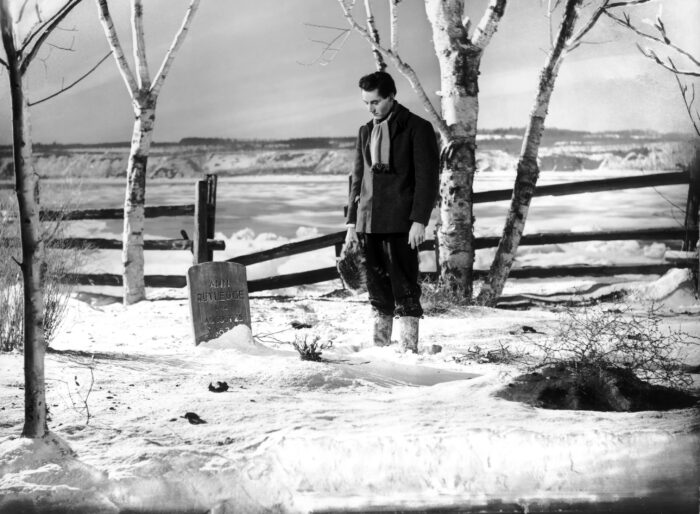One of Ford’s main works, the brilliantly framed Young Mr. Lincoln (1939), centers on an 1837 trial, where young Lincoln acts as a defense attorney. The film is not a ceremonious portrait of a great man or a pompous biopic that carves out a broad path, but a ghost story brimming with omens and a death dream; the director is not so much looking for a plot as writing a poem with his camera.
Henry Fonda’s clumsily lanky and rhythmically challenged president-to-be undergoes rites of passage “from immaturity to manhood, from innocence to corrupted wisdom, from man to mythical status” (Tag Gallagher), and the multifaceted portrayal enables genre-leaping from serious courtroom drama to screwball comedy that borders on Preston Sturgesian levels.
In Young Mr. Lincoln, patriotism represents a still hopeful, sincere ideological faith in American goodness – not the melancholy flag waving of an old conservative but empathy, where the myth is taken to an almost fairytale level. To the director, Lincoln was always dear and “the symbolic reconciler of the opposing forces of the American way of life” (Joseph McBride), but this time, the nation’s grand schemes are drawn before us not as dusty tomes of history but simply as an astoundingly effortless sketch. A little telling too, perhaps, is that to Russian colleague Sergei Eisenstein Young Mr. Lincoln was “of all the movies made up until now, the one that I would have most liked to have directed.”
Lauri Timonen
